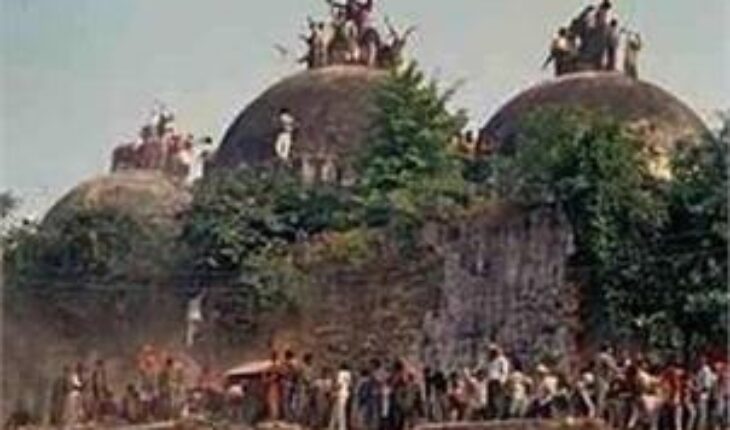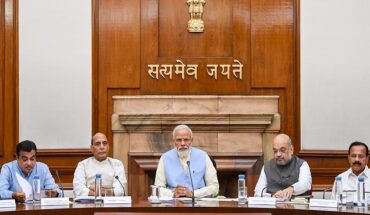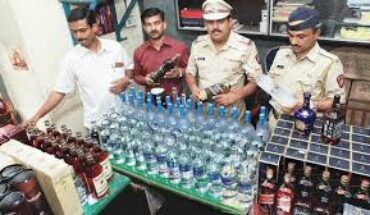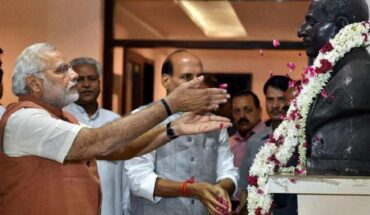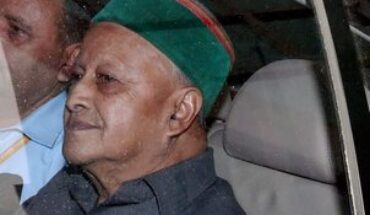NEW DELHI: The Supreme Court’s suggestion of an out-of-court settlement of the Ayodhya dispute on Tuesday reignited the debate on the vexed issue, with political parties broadly welcoming it, but Muslim outfits voicing scepticism.
The ruling BJP welcomed the apex court’s suggestion, insisting the parties to the case should keep in mind its “sensitivity”, while the Congress was guarded in its response, saying there should be a “consensus-based” solution or the SC adjudicate the matter on merit.
Union Ministers Giriraj Singh and Uma Bharti, considered Hindu hardliners in the Modi government, insisted that the temple be built at the disputed site. Union Minister P P Chaudhary said the government favours talks to resolve the Ayodhya dispute. “Government is always ready and encourages mediation. We encourage negotiations and mediations, even pre-litigation mediation and post-litigation mediation,” Chaudhary, who is Minister of State for Law and Justice, said. Muslim organisations, who are key to any amicable out- of-court settlement, however, voiced scepticism over efficacy of talks to resolve the long-standing dispute. “We welcome this step and I believe they should have talks outside the court,” BJP spokesperson Sambit Patra said, adding the party will study in detail the observations made by the apex court, which has said the issue is “sensitive and sentimental”, and is related to faith of millions of people. Congress’ chief spokesperson Randeep Surjewala said, “If all stakeholders on both sides can arrive at a mutually acceptable consensus-based solution, it will go a long way in ensuring lasting peace, goodwill, mutual respect and brotherhood. Otherwise, Supreme Court should adjudicate the issue on merit.” Muslim organisations, including the Babri Masjid Action Committee (BMAC), which is a party to the case, were sceptical about the Supreme Court’s suggestion, saying attempts at out- of-court settlement in the past have been unsuccessful. “We are ready with Chief Justice (of India) mediating… We trust him. We are also ready we if he nominates a team for hearing the matter. But out of court settlement is not possible. If SC passes an order in this regard, we will look into it,” said Zafaryab Jilani, convenor of the committee. Jilani said that going by the past experience, he feels that the matter cannot be settled outside the court and referred to unsuccessful negotiation attempts made during the tenures of former Prime Ministers Chandra Shekhar and P V Narasimha Rao. The Secretary General of All India Muslim Personal Law Board (AIMPLB), Maulana Wali Rahmani, said, “We have trust in the Chief Justice and if he is there we are ready for talks.” “Talks were held earlier also but it can be initiated again. But talks should not be long,” he added. Maulana Khalid Rashid of the AIMPLB alleged that the attempts in the past to resolve the issue were foiled by political parties. “Negotiation have been made in the past a number of times between the two parties. But each time political parties foiled our attempts…(So), we are of the view that let the Supreme Court decide once and for all,” Rashid said. BJP veteran L K Advani, one of the protagonists of the movement whose ‘rath yatras’ for construction of Ram temple galvanised and polarised Hindus to the advantage of the saffron party, said all concerned should reach a consensus to resolve it. “The Supreme Court’s observation is a welcome step and I hope in the light of the apex court’s advise, all concerned parties will reach consensus and will find a solution to resolve the Ram Temple issue,” Advani, who was the flag bearer of the Ram Janmabhoomi movement, said. BJP leader Subramanian Swamy, whose petition seeking an urgent hearing on the matter led to today’s development in the Supreme Court, suggested Ram temple should be built at ‘Ram Janmabhoomi’ (birthplace of Ram at the disputed site), while the mosque can be constructed on the other side of Sarayu river to resolve the dispute, which has defied resolution. “We were always ready. Mandir and Masjid should be built but Masjid should be built on other side of Sarayu river. The Ram Janambhoomi should be entirely for Ram Mandir,” he said, arguing, “we cannot change the birthplace of Ram, but Masjid can be made anywhere.” Giriraj Singh, known for his controversial comments, asked “If the Ram Temple is not built here, would it be built in Pakistan on Bangladesh”. Bharti, who was closely associated with the Ram Janmabhoomi movement in the 1990s and an accused in the Babri Masjid demolition case along with Advani, insisted that the issue of ownership of the disputed site be settled through talks. She said whosoever owned the land should offer it to Lord Ram as a “gift”. “There can’t be a bigger gift than this…we should arrive at a solution which will be remembered for thousands of years,” she said. Yogi Adityanath, the newly appointed Chief Minister of Uttar Pradesh whose guru and former Gorakhpur MP Yogi Avaidyanath was one of the leading figures of the movement, said aggrieved parties must sit together to resolve it. Terming the Supreme Court’s observation as a “solid” one, Adityanath said, “It is a welcome step.” Vishwa Hindu Parishad (VHP) chief Pravin Togadia said the Centre must bring out a legislation to build the Ram temple. The Ayodhya issue should be resolved at the earliest and a temple built with the involvement of all Indians, RSS functionary Dattatreya Hosabale said. He said, “It (Ram temple issue) is to be decided by the Dharam Sansad as they are the people who organised the entire Ram Janmabhoomi movement and the parties who went to the court. “RSS will not decide. RSS will go by the Dharam Sansad’s decision. The issue should be settled at the earliest and a grand temple should be erected with the involvement of all Indians,” Hosabale said.—PTI


